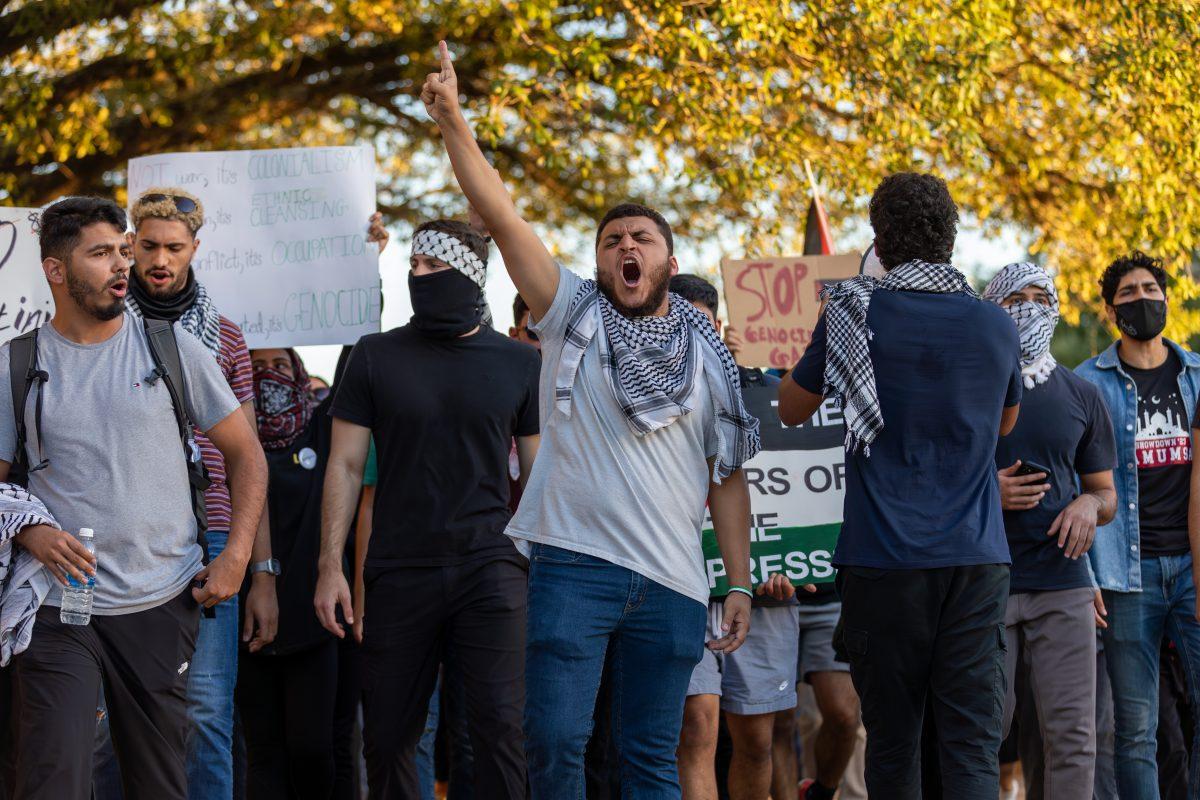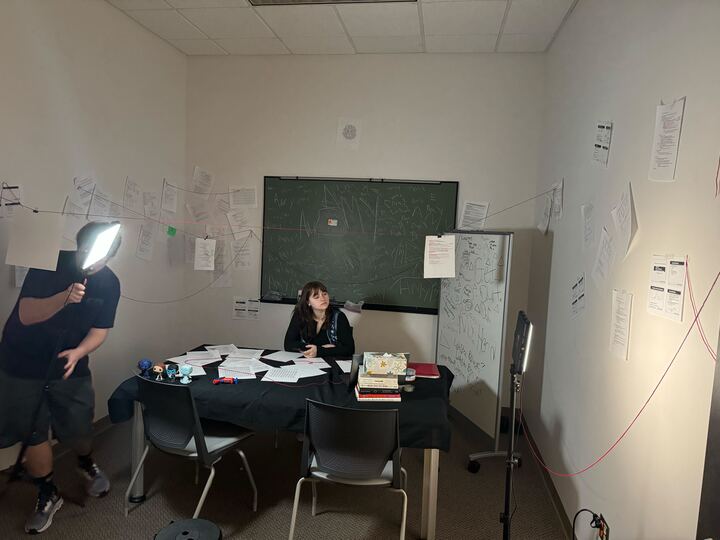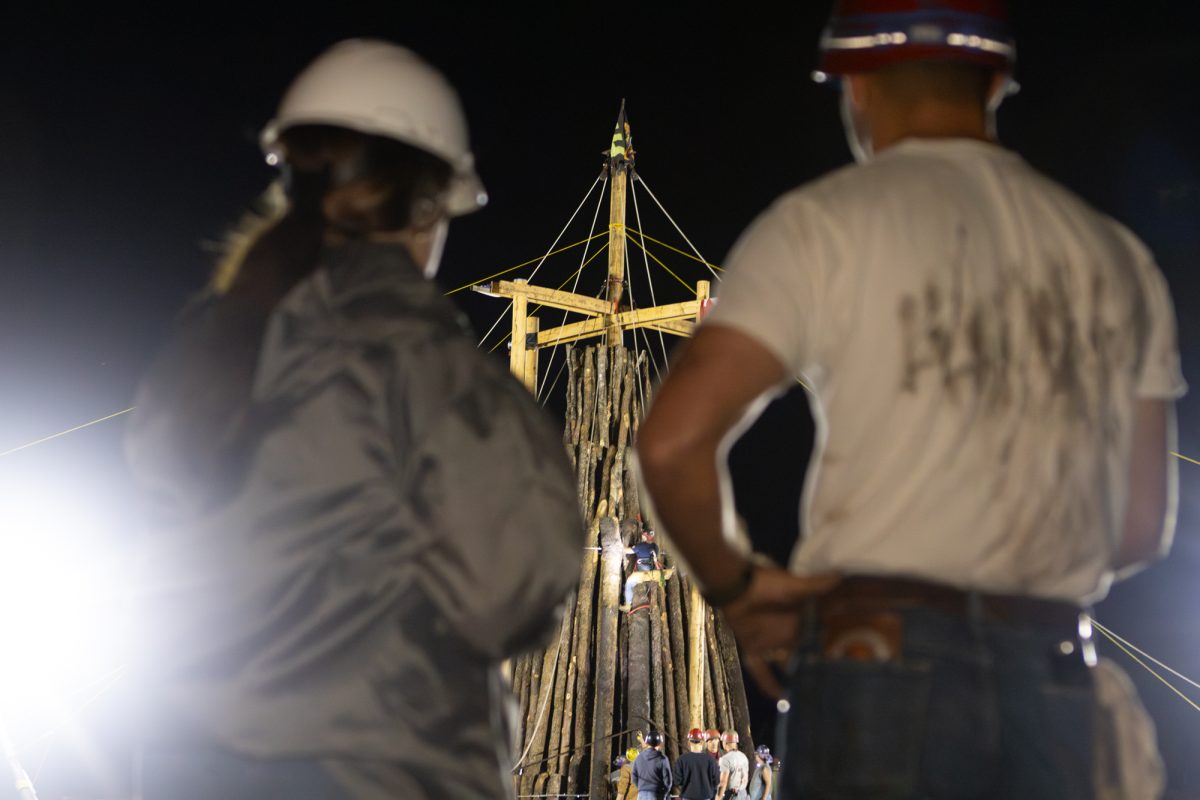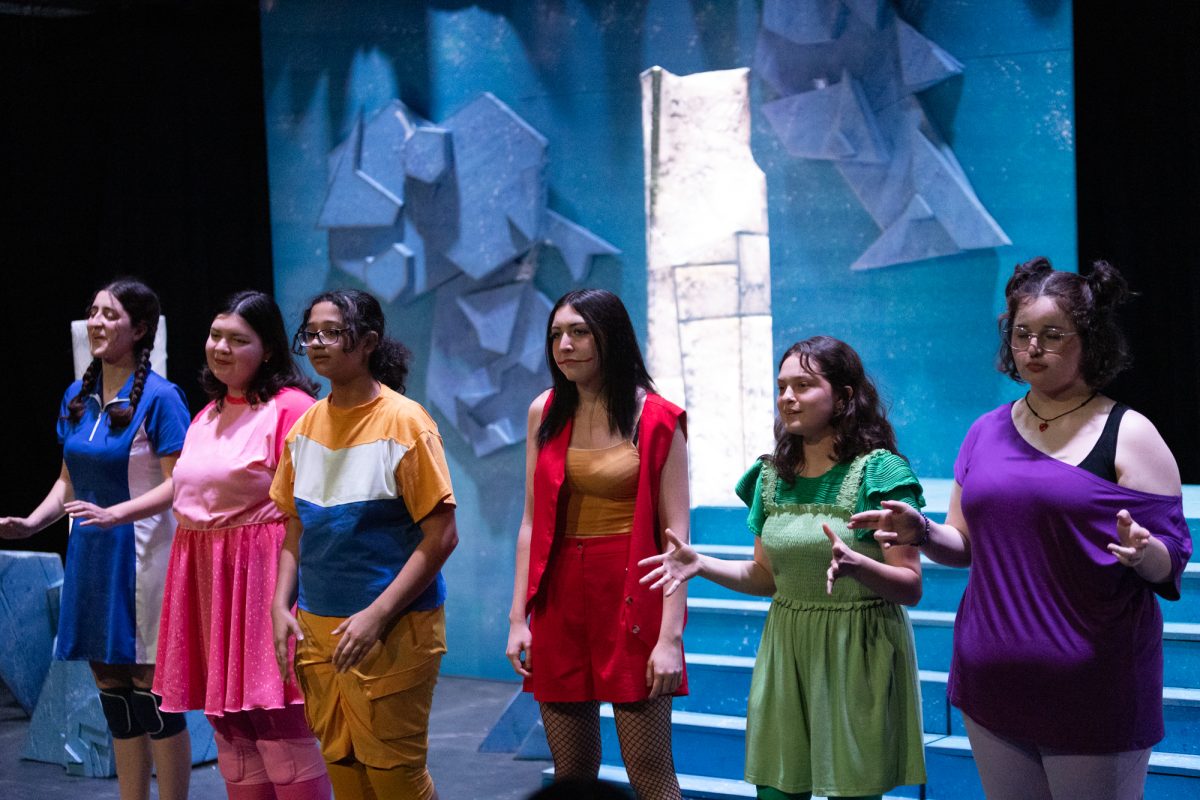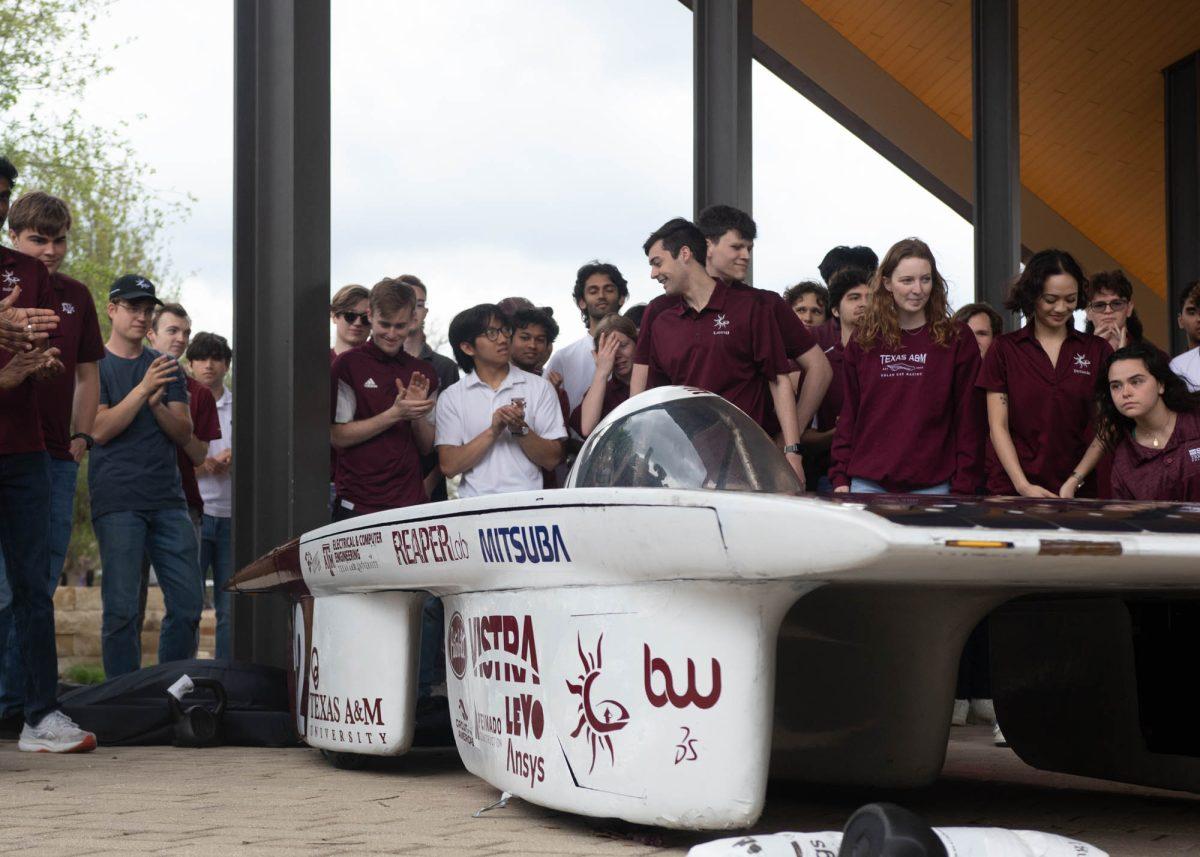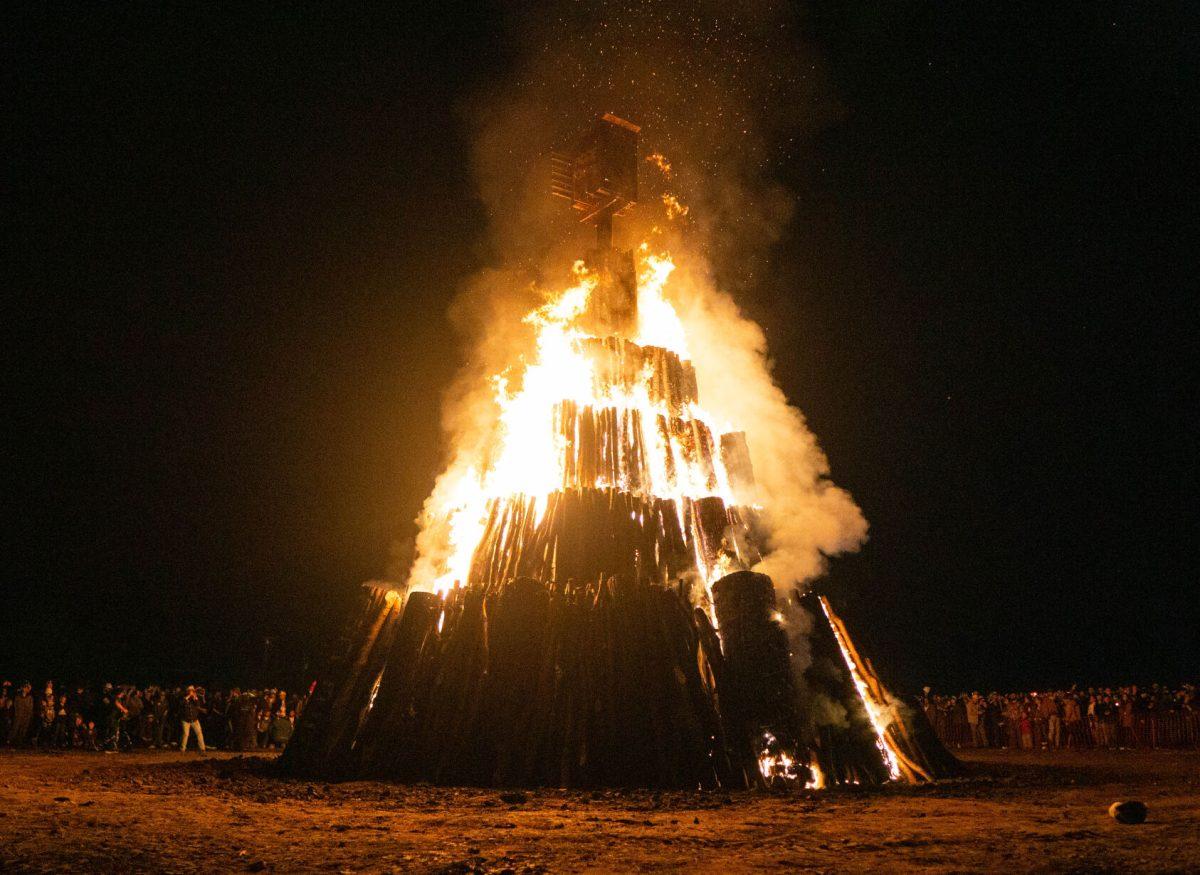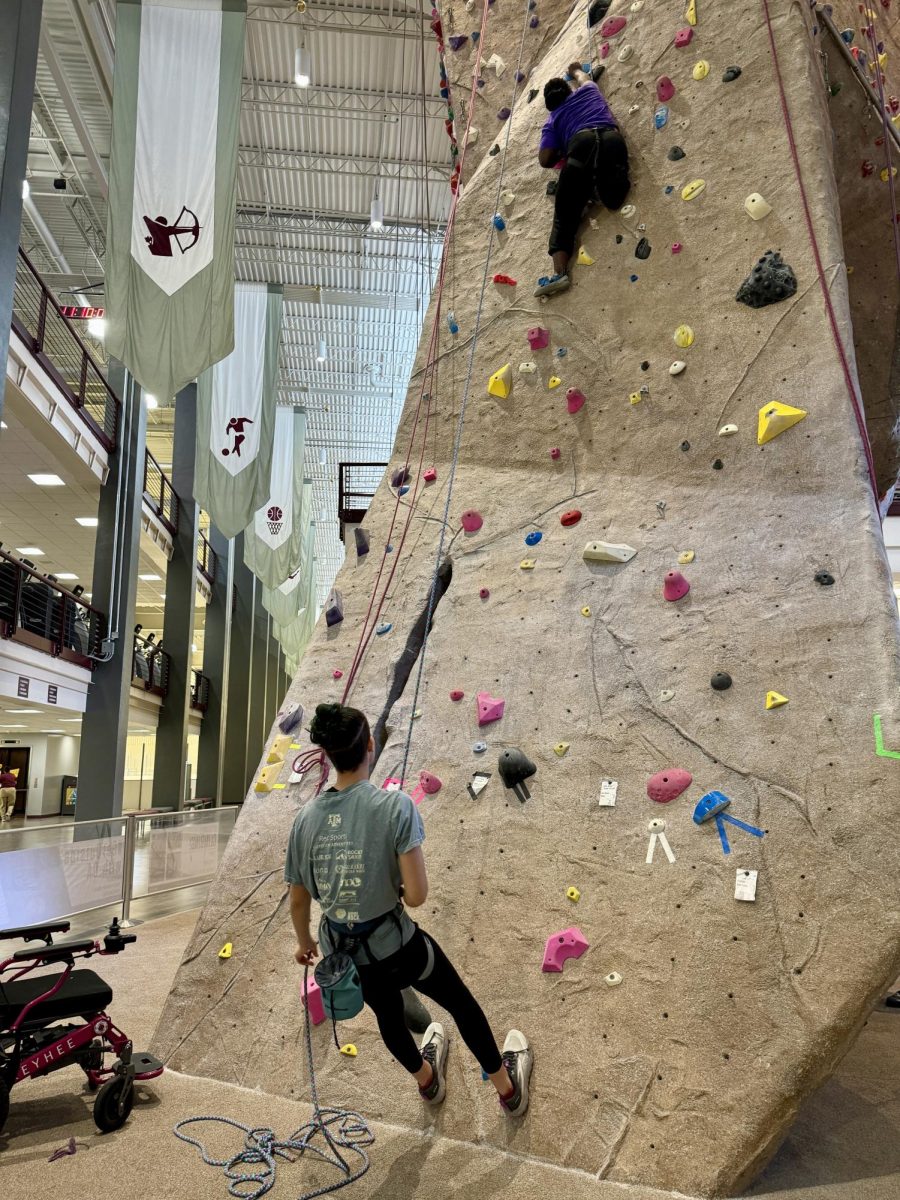As Gaza runs out of water and medical supplies and the civilian death toll surpasses 3,500 people, students, families and community members came together to show solidarity and raise awareness.
A march organized by student leaders of the Palestine Solidarity Committee, TAMU Arabs and TAMU Young Democratic Socialists of America had a turnout of over 100 students and community members. Protestors gathered at Rudder Plaza with signs in hand on Thursday, Oct. 19 at 6 p.m. to partake in a walk around Texas A&M’s central campus, concluding with speeches and a silent prayer.
Computer science senior and president of TAMU Arabs Ibrahim Semary said despite hearing about the ongoing 75-year conflict in Palestine for years, he recently became further educated on the topic beyond the media attention on the crisis. Semary said he’s been reading unbiased articles, watching documentaries and speaking to professors to learn where the conflict stems from.
“We’re out here today protesting simply to raise awareness for the unlivable conditions of the people in Gaza,” Semary said. “There’s 2.2 million people in Gaza right now. Israel has completely blocked out water, food, electricity [and] fuel. I have a lot of friends in Gaza who can’t even communicate with their family because there’s no internet.”
Students at A&M that joined the protests are a part of a larger, world-wide movement, Semary said.
“One of our chants is, ‘We want peace, you ask how? End the siege on Gaza now,’” Semary said. “Before we even try to find a solution to the entire Israel-Palestine conflict … we need to end what’s happening in Gaza right now.”
The U.S. and United Nations have the power to stop what’s going on right now, Semary said.
“It’s a very simple solution: Just don’t commit war crimes against these innocent people,” Semary said.
The push for humanitarian aid in Gaza does not include weapons or malicious intent, Semary said. It means providing food and water, as Palestinians don’t even have access to that, he said.
“Nobody supports the killing of innocent lives, whether it might be in Israel or Palestine … ” Semary said. “We have to equate them in saying … why isn’t the United States of America… giving the same value to the Palestinian people that they are giving to other people? The United States hasn’t really tried to stop what’s going on to the Palestinian people, even though there’s 3,500 people that have died just these past 14 days.”
Semary said many people covered their faces at the protest due to backlash for supporting Palestine at other universities, such as Harvard. People have had private information leaked and are scared, he said.
“This is the only way I can think of making a difference,” Semary said. “Getting support in order for leadership to realize this is our population’s stance on this movement, and hopefully when they see that so many people … out in the world are raising their voices for these innocent Palestinian people, then they can, without regret, make the decision that this needs to end immediately. I’m not afraid of raising my voice or saying my name … I know that this is something way bigger than me.”
Semary said their mission is to get basic rights to the people in Gaza, and they are not in support of any killings.
“We do condemn Hamas, and I’m deeply in sorrow for those Israeli innocent civilians that have been impacted because we feel that right now in Gaza,” Semary said. “I would like to add that while we do condemn this, it was not unprovoked. There’s been 75 years of oppression and occupation of Palestinian land which grew resentment from both sides. You can’t continuously bomb people, kill civilians, kick them out of their houses … and say that this is a surprise or that this was unexpected. That is completely ignoring the history between Israel and Palestine.”
A graduate student in material science and social chair of TAMU Arabs, Abdo Rashed, said he was devastated when he heard what was happening in Gaza, as he has friends from his undergraduate years who are now back in Palestine.
“If we are raising our voices here, on all campuses in America, we can change the policymakers’ opinions about Israel,” Rashed said.
It is important to amplify and listen to the Palestinian people, the people who are suffering, rather than American people who might be pushing a certain agenda, Rashed said.
“I think students are very effective with their young voices and perspectives that will grow up to be policymakers and have power later on,” Rashed said. “We want to show other A&M students … that even if it doesn’t all change now, it will change in the future.”
Rashed said, western media seems to take one perspective and does not make sure that their information is verified or accurate. A false story of 40 Israeli babies being beheaded was even repeated by President Biden, so it is important to look to multiple media outlets, he said.
“I would like to change the perspective of A&M students, the community, the professors — not from the media perspective [and] not from propaganda or the Israeli perspective,” Rashed said. “Our perspectives as students who are Palestinian or Arab and we want people to see us, and give a narrative beyond the one-sided narrative.”
As an Egyptian who has lived there for 20 years, Rashed said Palestinians are his brothers and sisters, so he feels deeply about the humanitarian crisis. He also said concern should not be limited to those who are Arab or Palestinian.
“[People in America] should care because our tax money goes toward Israel,” Rashed said. “$4 billion dollars a year. If they are spending that money, we need to question our government and why they are giving Israel that money… If it is an investment, what is it an investment in? Killing innocent people? Is this what America is about?”
Journalism junior and member of the Muslim Student Association Shalina Sabih said her reaction has been unwavering in this ongoing conflict and she fails to understand why this is going on.
“Enough is enough,” Sabih said. “This has been going on for so long. It has gotten worse. Now more than ever, our voices need to be heard. People need to know that what is happening in Palestine and Gaza right now is wrong. People are being slaughtered and killed. It is genocide.”
Sabih said she hopes at least one person went home after the protest and learned more about what they saw.
“We walked around this campus today, and there were a lot of people,” Sabih said. “I know people heard us. We were loud. At the end of the day, people are going to wonder what’s going on [and] if they don’t know about this, they’re going to go home and look it up.”
They don’t want to be violent, angry or disrespectful, Sabih said. They just want people to know what’s happening in Palestine, she said.
“You don’t even have to be personally affected by it to raise awareness because, let’s be honest, genocide is wrong,” Sabih said. “You don’t have to be a certain race, ethnicity or religion to understand that this needs to be stopped.”
Biology junior Mariam Sharief said she was deeply saddened — but not surprised — by what is happening in Gaza.
“It’s not something that is new to me, which I feel like it is for a lot of people, but for me, it’s always been in the back of my mind,” Sharief said. “What happens in Palestine during Ramadan every year, when Israel attacks the Al-Aqsa mosque, is something that we just sit and wait for.”
Sharief said attending the protest was a way of showing support to the people of Gaza who are unable to have the childhood and opportunities that she enjoys. Palestine is losing their lineage, and their history could be lost forever, she said.
“We can spread the word in one corner of the world in College Station, I feel like spreading news and information is so important especially in the face of so much misinformation,” Sharief said.
What is happening in Gaza is a result of old problems Sharief said. The next generation has a responsibility to educate one another and not allow the world to make the same mistakes, she said.
“The people of Palestine have lost the lottery of life,” Sharief said. “The world should realize that not one country needs to have an upper-hand over another, because at the end of the day, all humans bleed the same color.”



